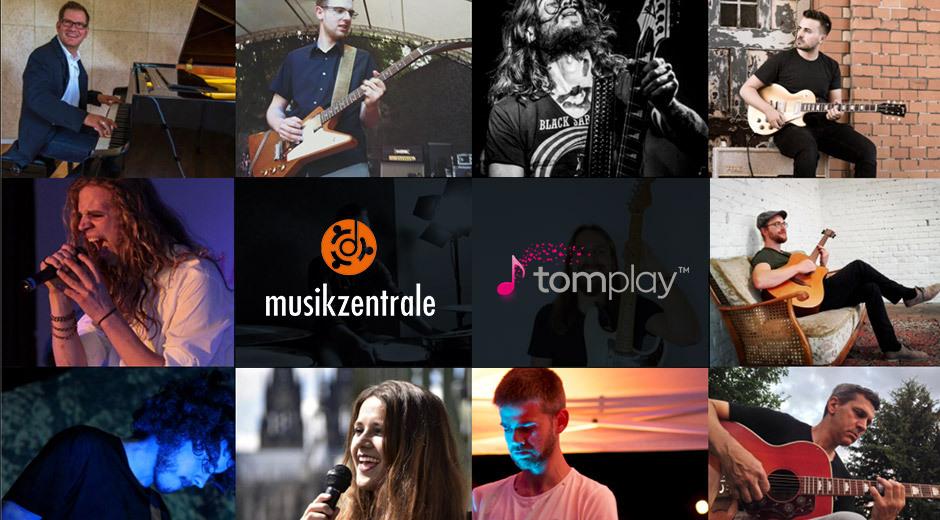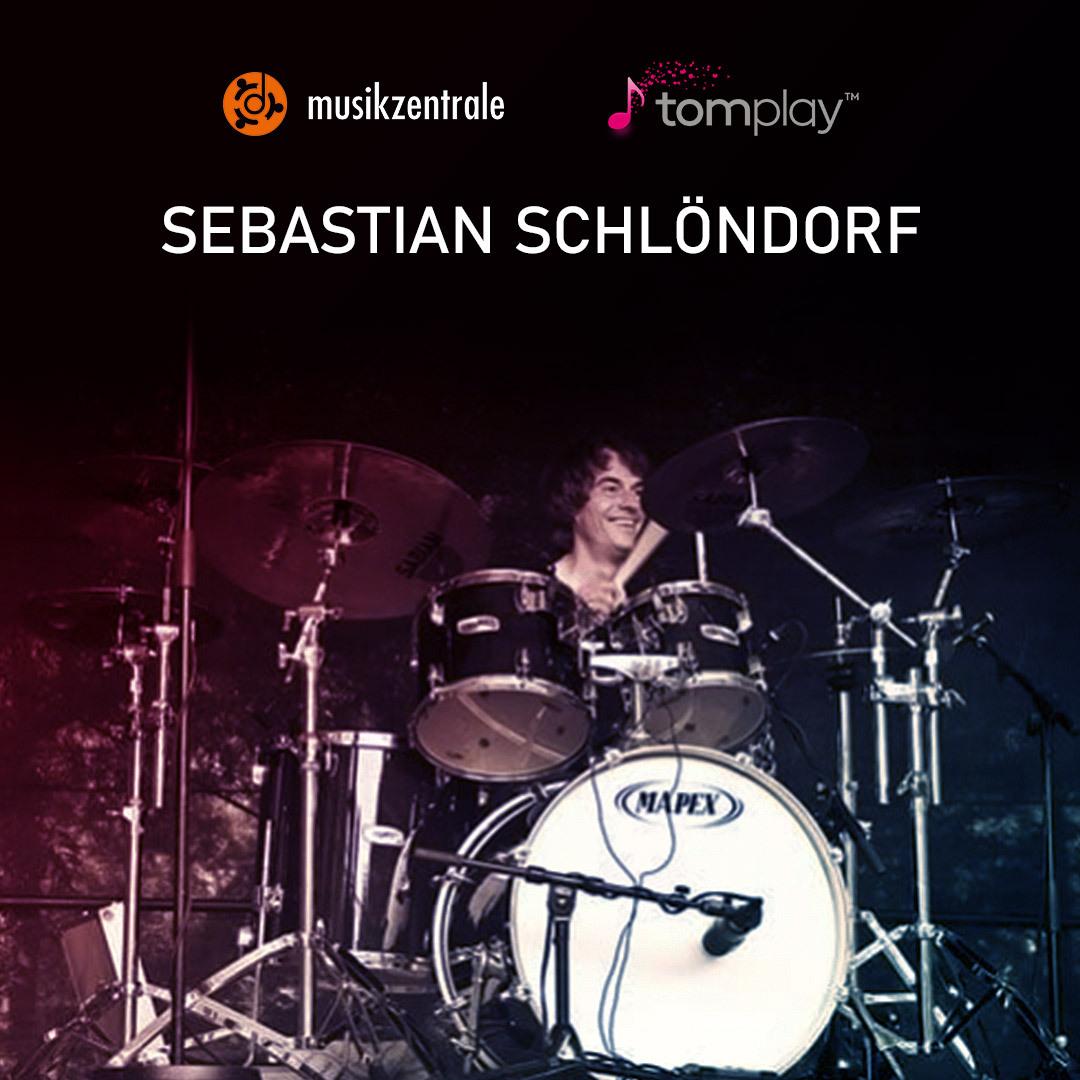Five Questions to Sebastian Schlöndorf, Music School Director at Musikzentrale
Musikzentrale in Hesse, Germany, has been one of the first German music schools to collaborate with Tomplay. Sebastian Schlöndorf is a passionate drumming teacher and band coach as well as co-founder and director of Musikzentrale. In this article, Sebastian shares his story, how his music school became fully digital during the pandemic and why he loves using Tomplay with his students and fellow teachers.
Five Questions to Sebastian Schlöndorf, Music School Director at Musikzentrale
Sebastian, why did you start a music school? What’s your story?
I've always had the idea that I should offer music lessons that are different from what traditional music schools offer.
But I was still a bit scared at the time and couldn't imagine doing it right in my hometown. That's why I looked for a location a bit further away in the north of Hesse, in Korbach, where I opened a small music school with musicians from my band: simply five teachers, one location and the five of us in the middle of it. And we announced: “We are now a music school, you can come”. And then they came and they were many. In fact, within six months there were almost 400 students, so we couldn't help but expand. And then the idea grew even further so that we expanded it to several locations. In other words, founded a school in Wetzlar and then continued at various locations across Central Hesse, Germany.
The focus has always been on teaching pure band music. That means, the instruments are from a band context: guitar, bass, drums, vocals, keyboard rather than piano at the beginning, a bit of saxophone and that's it. And always the same direction: We want our students to be able to play music together with others in a band as early as possible. That is basically what we are still teaching today.
I think that a large number of band formations in the region can actually be traced back to our teaching and here especially to our band camps.
In the current times with Covid, when band camps cannot take place, how have you changed your lessons?
We taught online, like almost all music schools I know. However, we were very fortunate that shortly beforehand we looked for a solution on how we could communicate better with our teachers. And videotelephony was a very important aspect for us. That means that we had already built-in video telephony within our school software as a form of communication for our teachers. But with a little extra work, we were able to extend this technology to our students. So it was very easy. The lockdown was imposed on a Thursday and the following Monday we were able to teach our students online.
The students came to the online lessons once a week and in some cases we even increased the frequency for the students free of charge. They could attend several courses per week. I practiced online with my students for half an hour every day. They could then tune in or leave it, just as they liked. And so we tried a lot of offers to keep the community spirit going. It's not just about playing together, it's about being together. That's what defines the creative process in a band.
At what point did you find out about Tomplay? And which other digital tools did you further use?
There is a wonderful tool within our music school software for sharing Youtube videos. We first played our own media libraries and asked ourselves: What great drum videos do we have? What kind of crazy musicians are out there that I've always wanted to show to my students?
The only thing missing was being able to play the music together. We didn’t have that before and this is where Tomplay came into the picture.
Then it quickly became apparent that behind Tomplay there was a lot of attention to detail, a lot of love and enthusiasm. And that has impressed me immediately. It was clear that someone had really given it a lot of thought and you can immediately find that in the app. There is really a lot of love behind it for the music and for the people who run it and you notice that straight away.
Back to you again, Sebastian: You're a drummer. How do you use Tomplay in your drumming lessons?
By far my favorite feature of Tomplay is the ability to slow down the tempo because every student immediately wants to be able to play at least the original tempo, if not faster.
But that's difficult for beginners, so I hide the tempo from my students and deliberately set it slower to a tempo that they can presumably play. In addition, there is the loop function. Those two features immediately provide a fully rounded picture: As a student, I can play music from the very first moment.
This is then perfectly complemented by several difficulty levels that are available for most of the pieces. This means that the students can also follow their own progress whilst practicing more difficult scores. It's a wonderful feature.
Would you recommend Tomplay to your colleagues?
Yes absolutely. I am already doing that because we are currently all looking for digital concepts. For a music school director, this is very important at the moment. We all exchange ideas. Who is using what tools? At the moment it's primarily about the classroom platforms, so where do students and teachers meet?
Of course, this can be done in an even more musical way by providing audio and video files. And this is where Tomplay comes into play with audio backing tracks which are provided in such a way that they make sense for practicing, e.g. by slowing them down, speeding up, and looping them. So the Tomplay scores represent an added value when practicing and are therefore an aid for the teacher. It makes perfect sense and it definitely has to be published that something like this exists.
Thank you, Sebastian!
Facebook: www.facebook.com/Musikzentrale/
Instagram: www.instagram.com/musikzentrale



Añadir un comentarío...